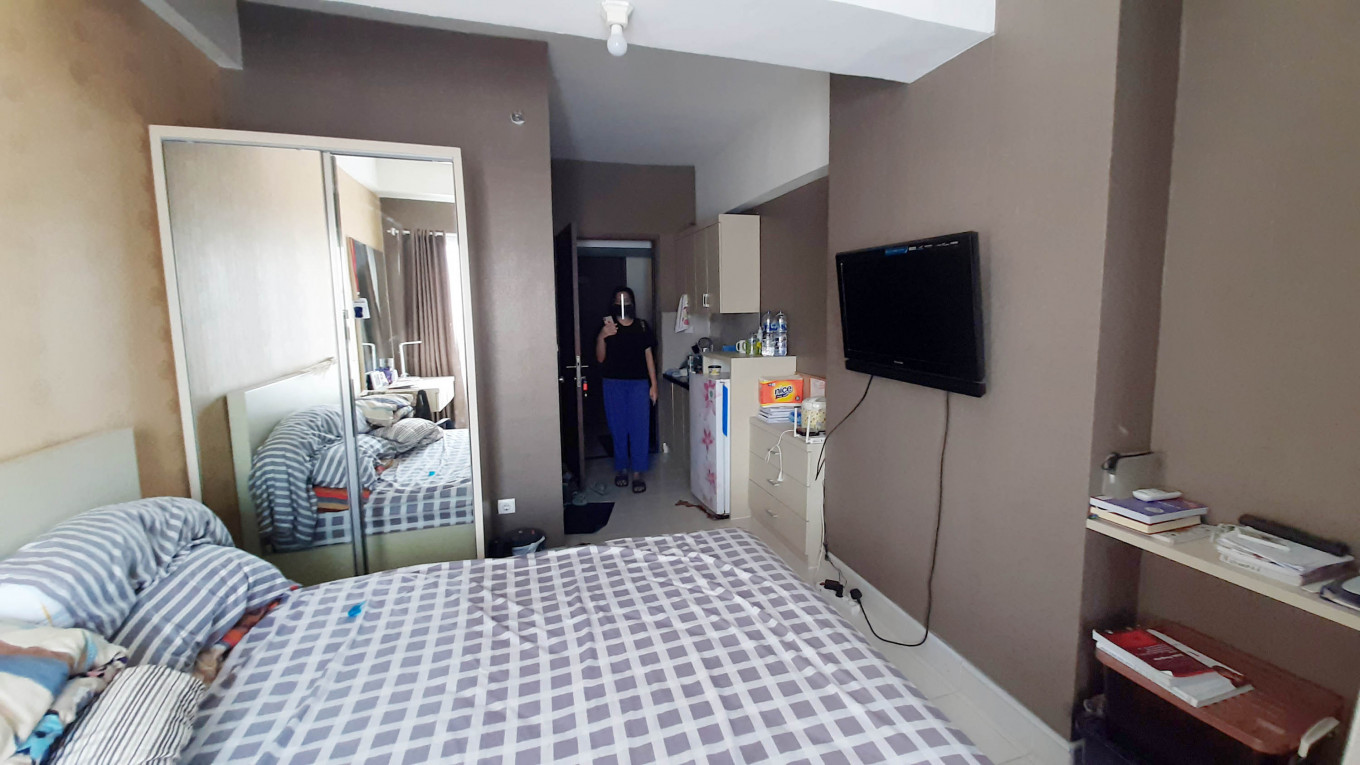Popular Reads
Top Results
Can't find what you're looking for?
View all search resultsPopular Reads
Top Results
Can't find what you're looking for?
View all search resultsJobs law allows foreigners to own apartments
Other regulations only allow foreigners to possess property under the right of use.
Change text size
Gift Premium Articles
to Anyone
T
he recently passed Job Creation Law enables foreigners to own apartments in certain areas, a relaxation of previous property ownership regulations that is expected to boost demand in the cooling property industry.
Article 144 paragraph 1 of the jobs law stipulates that ownership rights for apartments can be granted to foreigners, foreign legal entities and representatives of other countries or international organizations in Indonesia, in addition to Indonesians and Indonesian legal entities.
Other regulations, such as the Agrarian Law and Agrarian and Spatial Planning Ministerial Regulation No. 29/2016, allow only Indonesians to own apartments under full ownership rights, while foreigners can possess property under the right of use.
The omnibus law’s explanation of the article states that full ownership rights for foreigners and foreign entities only apply to apartments located in Special Economic Zones, Free Trade and Free Port Zones, Industrial Estates and other economic zones.
“If it gets implemented, the impact will be positive,” Arief Rahardjo, director of research and strategic consulting at real estate services firm Cushman & Wakefield, told The Jakarta Post via text message on Tuesday. “This means the target market will get bigger, particularly for projects in potential locations for foreigners.”
He added that the industry’s stakeholders should pay attention to whether there would be any further regulation that stipulated a minimum apartment price for ownership by foreigners.
The law does not say if ownership rights will be further qualified in other regulations, nor does it set a minimum price.
The government and the House of Representatives enacted the Job Creation Law in early October hoping to cut red tape and attract investment despite public outcry that the legislation would jeopardize labor rights and environmental protection.
The law revises more than 79 laws and eliminates thousands of regulations in various sectors, including labor, agriculture, mining and small businesses.
Arief said the jobs law was expected to boost the apartment market at a time when demand was subdued because of the COVID-19 pandemic.
His office’s marketing team observed that foreigners interested in owning apartments were mostly those who visited Indonesia frequently because they had a business or a spouse in the country.
A report by real estate services company Savills Indonesia released on Monday showed that low apartment sales during the pandemic had led some developers to offer bloc sales of apartments at discounts.
“In the property sector, the new law includes a provision for the relaxation of foreign ownership restrictions, something that we expect to boost growth in the luxury apartment market,” director Anton Sitorus said in a statement on Monday.
The pandemic has constricted the property market as purchasing power has weakened and business activity has cooled.
Bank Indonesia’s quarterly Residential Property Prices Index (IHPR) found that residential property sales had declined 25.6 percent year-on-year (yoy) in the second quarter.
Jacintha Poh, a senior credit officer at credit rating company Moody’s Investors Service, expected that the move to allow foreigners to own apartments would boost demand for property development and drive recovery in the market.
“The move comes at a time of particularly weak demand amid the coronavirus pandemic and an uncertain economic outlook and should underpin a 35 percent recovery in marketing sales in 2021 from 2020 levels,” Poh said in a statement released on Oct. 8.
“Nevertheless, it will take some time for these higher sales to strengthen developers’ credit metrics, given the lag between the time of the sale and subsequent revenue recognition,” she added.
Indonesia Property Watch executive director Ali Tranghanda, however, took the optimism with a grain of salt. He expressed concern that the omnibus law’s provision contravened other regulations and asked that the government provide a clearer explanation of foreign ownership.
“The rule will not automatically attract foreigners to buy an apartment, let alone increase apartment sales,” he wrote in a statement on Wednesday. “Even with a good regulation, it is uncertain that foreigners will be interested in buying an apartment in Indonesia if there is not legal certainty, political and economy stability and an investment-friendly environment.”










